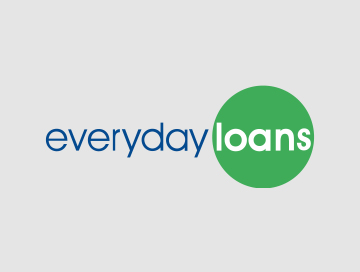As we celebrate National Pet Month, we’re taking a look at the ways we can reduce the cost of owning our beloved pets.
Here at Everyday Loans, lots of us have them. In fact, many of us are chuffed to be amongst the UK’s 17million pet-owning homes – 3.2million of which have acquired a furry friend since the start of the pandemic.
Between us, we’re spending almost £94million each week on caring for them. But, by choosing the right insurance, buying the essentials at the right price and taking on board a few more of these top budgeting tips, you could save yourself hundreds of pounds. Here’s how.
1. Buy pet food in bulk
You can cut the cost of pet food by as much as 50% by buying in bulk. Usually, the bigger the package of food you can buy the cheaper it will be. If you’re buying it online, check price comparison websites and always look for discount codes that can cut costs further. Do look out for special offers, though, as sometimes these make it cheaper to buy smaller packs of food. Also, make sure you’re feeding your pet the recommended portion.
2. Choose a mixed-breed
Pedigree animals tend to cost more up front, they can often be more expensive to care for if it is a breed that’s prone to ill health.
Research suggests it could cost up to a third more a year to care for a pedigree pet – for example, the insurance alone could cost around 40% less than for a pedigree dog or cat and, as they tend to be more robust, don't need specialist food.
3. Adopt and rehome
Similarly, look into rehoming a pet. There are so many benefits from doing so, which is no doubt why research shows that dog adoptions have increased significantly in the last year with online searches for dog adoption increasing by more than 203%.
By doing so, you will pretty much certainly pay less than you would from a pet shop or breeder. Many charities simply ask for a donation when you agree to rehome an animal. Some will also arrange subsidised vaccinations and neutering before you pick up your new pet.
4. Don't rush to go to the vet
Clearly, if your pet has been in an accident, you shouldn't hang around. But minor ailments sometimes cure themselves. You wouldn't book a doctor’s appointment for a sniffle, so why seek expensive help as soon as your cat or dog sneezes?
Recent research suggests unnecessary emergency vet appointments cost UK pet owners £118million a year – a combination of consultation fees, travel costs and lost annual leave.
5. Keep jabs up to date
Paying to get your pet vaccinated against nasty illnesses each year is a hit on your wallet, but not doing so could prove even more costly. If your animal falls ill with something it could have been vaccinated against and you don't have insurance, you could end up paying far more than the price of the jabs. Even with insurance, some policies will refuse to pay out if an illness could have been prevented with vaccination.
6. Buy cheaper medication online
Instead of buying medication from the vet, order it online. There are lots of reputable websites that sell prescription and non-prescription medicines for up to 50% less than the price you will usually pay.
7. Take out pet insurance
One of the most expensive parts of having a pet can be covering the costs of any illness or accidents. According to RSPCA figures, some 50% of UK pets will require treatment at some point this year - at an average cost of £220.
Yes, it's an extra cost but could save you hundreds of pounds in the long run.
8. Do your homework to find the best insurance policy for your
Pet
insurance premiums are based on the type of pet you have, its age, where you live and other factors that will determine how likely it is to get lost or become poorly.
There is, however, a huge difference between how much you pay and the cover you have. As with all insurance, you could cut your premiums by taking on a higher excess. Shop around on price comparison sites – there are lots of them to choose from. And always make sure you read the small print - the cheapest policy might not offer the best deal. Check out how long ailments will be covered and if there’s a limit on the amount they will pay out.
Similarly, if your pet is prescribed medication for the rest of its life, will insurance cover the cost? If not, you could be picking up the tab when the cover runs out. Weigh up if it’s worth paying a bit more for a policy that offers ongoing cover.
9. Cover holidays by creating a cat-sitting circle or get a house-sitter
Kennels or getting someone in to feed your pet while you're away can add a significant amount to the cost of your holiday.
Instead, find friends and neighbours who also have pets and help each other out. If you are going on a longer holiday, look into getting a house sitter. There are lots of professional companies online that provide the service – and will probably be cheaper than kennels if you have more than one animal.
10. Buy preloved toys and bedding
Pets don’t need expensive toys. Second-hand charity shop and car boot bargains are a really great purse-friendly alternative. Tying a piece of string to a door handle can amuse a cat for hours, as can feathers, balls and cotton reels.
Likewise, rather than buying costly pet blankets and towels, purchase preloved or recycle your own. It’s doubtful that doggy will turn its nose up at being dried with a bath towel that’s seen better days.




